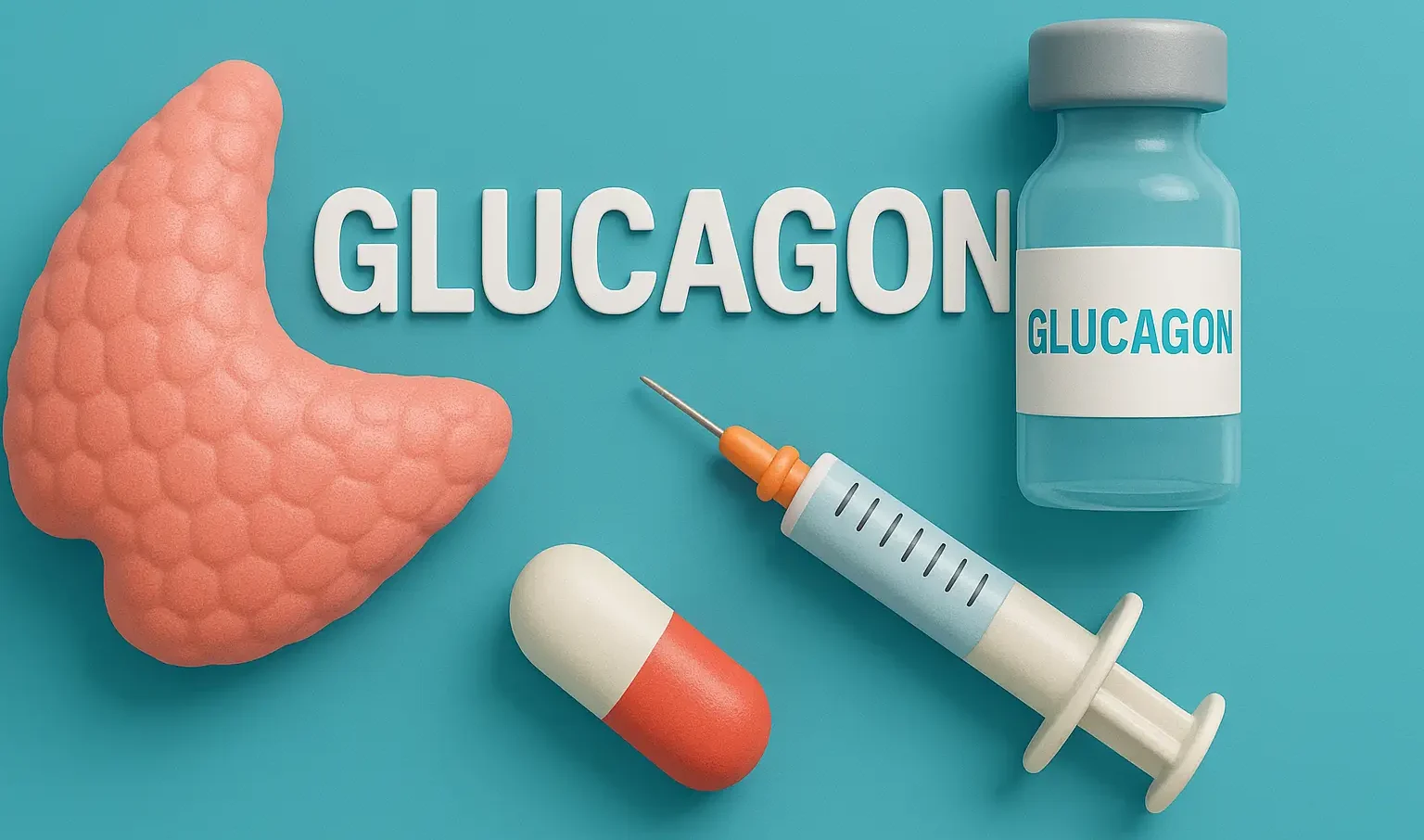- Glucagon: A peptide hormone that raises blood glucose by stimulating glycogen breakdown in the liver.
- Glucagon: Used in emergency treatment of severe hypoglycemia and as a diagnostic aid.
Physiology:
- Secreted by α-cells of the pancreas in response to low blood glucose.
- Increases blood glucose by stimulating glycogenolysis and gluconeogenesis in the liver.
Glucagons (e.g., glucagon emergency kits):
Use:
- Acute management of severe hypoglycemia in diabetic patients unable to take oral glucose.
Mechanism:
- Stimulates glycogenolysis and gluconeogenesis in the liver, rapidly increasing blood glucose levels.
Advertisements
Administration:
- Typically administered via intramuscular injection in emergency settings.
Clinical Applications
- Insulin Therapy: Essential for type 1 diabetes and advanced type 2 diabetes.
- Oral Agents: First-line or adjunctive therapies for type 2 diabetes to achieve glycemic control.
- Glucagons: Critical in emergency situations to reverse hypoglycemia.
Side Effects of Glucagon
- Insulin: Hypoglycemia, weight gain.
- Oral Agents: Vary by class; generally, include risk of hypoglycemia (sulfonylureas), gastrointestinal issues (metformin), and others as noted.
- Glucagons: Nausea, vomiting, potential for allergic reactions.

